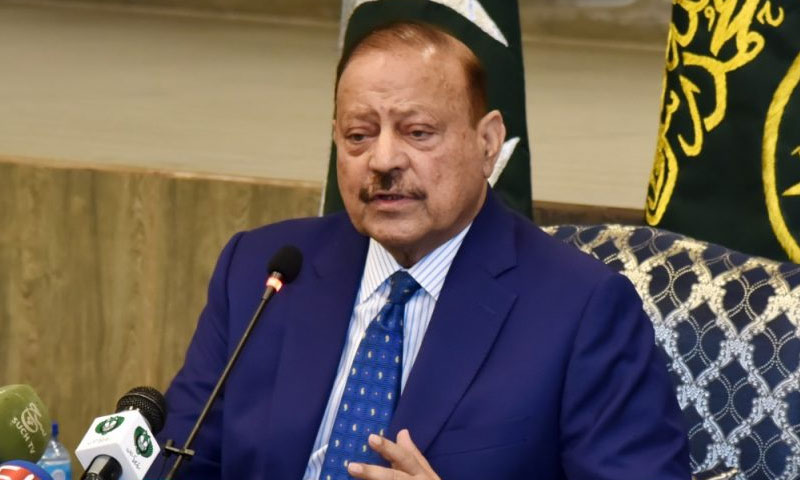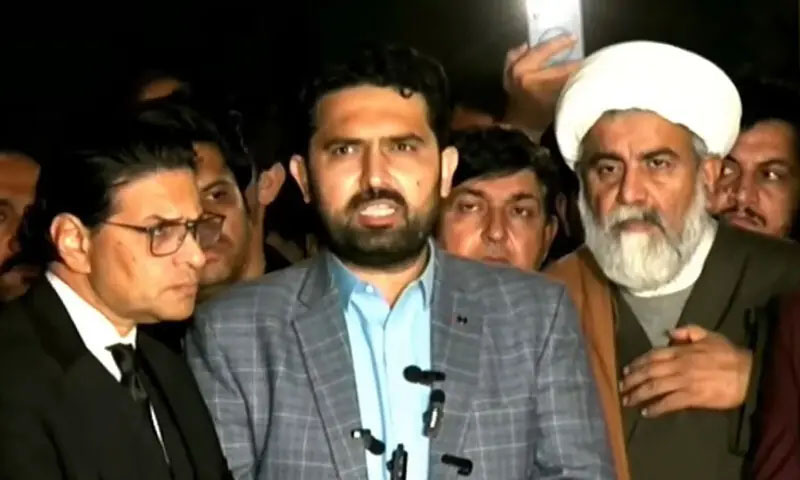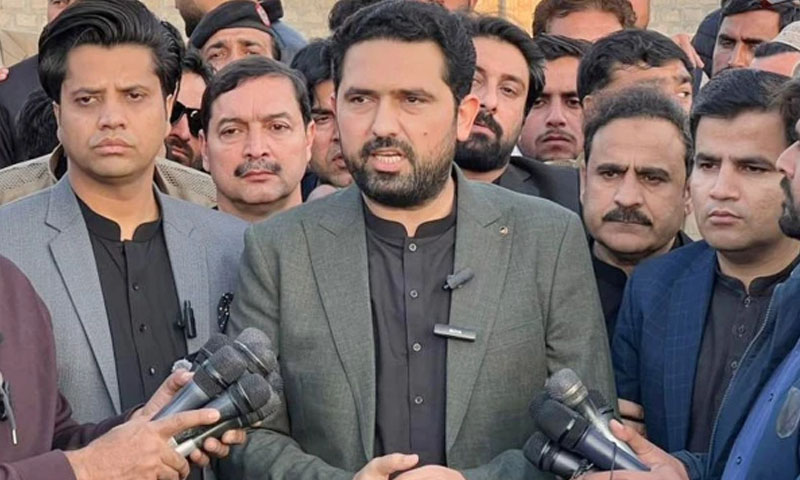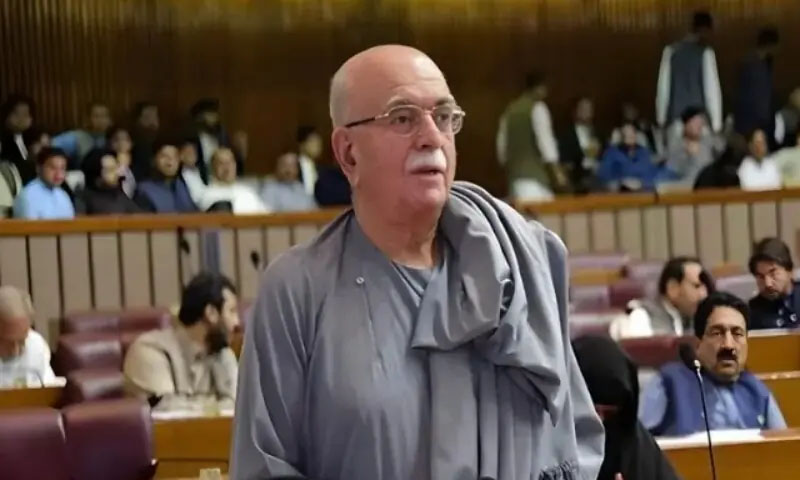- Web Desk
- Jan 31, 2026
PPP’s controversial rise in Balochistan amidst political maneuvering
-

- Web Desk Imtiaz Baloch
- Mar 05, 2024
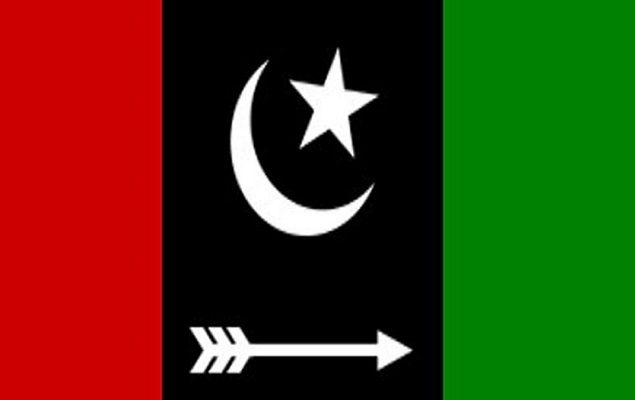
QUETTA: Balochistan stands out in Pakistan’s recent political landscape. While other provinces witnessed leadership changes, the same individuals remain at the helm in Balochistan, simply switching between different party banners. This time, the Pakistan People’s Party (PPP) and the Pakistan Muslim League-Nawaz (PML-N) have joined forces, forming a government that feels disconcertingly familiar despite the new label.
Two months before the general election in 2018, several similar eletables, including Jam Kamal, Sarfraz Bugti, and Sardar Abdul Rehman Khatran, announced a break from the PML-N to form the Balochistan Awami Party (BAP). This move followed former prime minister Nawaz Sharif’s controversial “Vote ko izzat do” (respect the vote) campaign, which criticized the country’s political establishment and mobilized supporters for protests.
Jamal Kamal, no stranger to switching allegiances, served as Minister of State for Petroleum and Natural Resources in Nawaz Sharif’s last term. But discontent simmered. He resigned, criticizing the PML-N government for neglecting Balochistan and failing to include them in decision-making. “We wanted to contribute through national politics,” he lamented, adding “yet crucial decisions impacting Balochistan were made without consultation.”
This wasn’t Kamal’s first political shift.
Following a family tradition, he initially walked in the footsteps of his grandfather and father, who both held chief minister positions in Balochistan. Just five years after quitting the PML-N, Kamal rejoined their ranks, highlighting the complex and often fluid nature of political loyalties in Balochistan.
Jams, Jamalis, and Magsis, the favoured of the county’s powerful quarters, ruled the province under different regimes, including the dictator era, and held government offices for decades. Unfortunately, there have been no changes, and neither the central parties have shown any serious commitment towards Balochistan.
The PPP from its inception did not get any reorganization from Balochistan; both from nationalists and electables. “Resentment among the Baloch for PPP is not a new phenomenon rather its roots span over 50 years.” said Rasheed Baloch, a Balochistan-based senior journalist.
The PPP founder Zulfiqar Ali Bhutto, back in the 1970s removed the first provincial government led by the National Awami Party (NAP) and imprisoned several Baloch and Pashtun leaders under the Hyderabad conspiracy case. “Bhutto also launched a military operation in the Marri, Bugti and Jhalwan areas of Balochistan. Reports suggest that during the operation, thousands of ordinary people and insurgents,” he said.
In Balochistan, the PPP has always been considered a party that preserved anti-people sentiments by backing those forces who preferred their individual preference rather than the common masses. Central parties had been playing a politicking role in Balochistan by using tactics of supporting and manipulating, analysts said.
During the PPP rule during 2008 to 2013, undoubtedly many initiatives took place to overcome the long-lasting grievances of the province. The PPP through the 18th Amendment milestone empowered the provinces by sharing its natural resources with the federal government and provinces.
However, in Balochistan, the previous tenure of the PPP witnessed a “stern attitude” marked by alleged disappearances and a “kill and dump” policy, according to analysts. This, they argue, further inflamed existing grievances and fueled the armed insurgency.
This backdrop, believes Quetta-based journalist analyst Rasheed Baloch, is what led influential figures like Jam Kamal, Changez Marri, Asim Kurd, and Saleem Khosa to gravitate towards the PML-N during the 2018 election. Months before the February 8 polls, The PML-N supremo Nawaz Sharif visited Balochistan and gained the support of many electables. In contrast, despite repeated visits, the PPP chairman failed to gain similar traction in the province.
Interestingly, before the general election of 2018, the PPP hadgeared up to win at least 6 Senate seats from the Balochistan assembly without any single representative in Balochistan. PML-N also accused the PPP of playing a role in removing the PML-N government in Balochistan led by Chief Minister Sanaullah Zehri through horse-trading by presenting a non-confidence motion. In a similar attempt, the PPP along with the PTI supported Sadiq Sanjrani in the Senate Chairmanship because many independent senators from Balochistan pledged to join the PPP. Bilawal Bhutto Zardari also said that their party is supporting Sadiq Sanjrani in light of the widespread feelings of deprivation experienced by the people of Balochistan.
In the Balochistan Assembly, the PPP, as being a central-level party, did not secure a single representative for a decade. Now, things have changed as many influential, electable, and business persons bowed down towards the PPP. Even the PPP has now has elected the chief minister of Balochistan. Nevertheless, the people of Balochistan believe that the PPP is being imposed on Balochistan this time around.
While visiting different areas of Balochistan during the election period, the author found the NA-259 Gwadar-cum-Kech constituency buzzing with activity. Former Chief Minister and National Party chief Dr Abdul Malik Baloch, Haq Do Tehreek’s Hussain Wadaila, independent candidate Yaqoob Bazinjo, and PPP’s Malik Shah were all vying for the seat. Local predictions pointed towards a tight race between Dr Malik, Wadaila and Bezinjo.
However, in a surprising turn of events, PPP’s Malik Shah emerged victorious, despite being seen as a “transit candidate” with minimal local presence or campaign activity.
The result is a sense of disenfranchisement among the Baloch people, who feel like pawns in a political game played by outsiders. Balochistan’s story remains one of unfulfilled potential. Until the province breaks free from the cycle of familiar faces and exploitative political maneuvering, achieving true progress and addressing the long-standing needs of its people will remain a distant dream.

